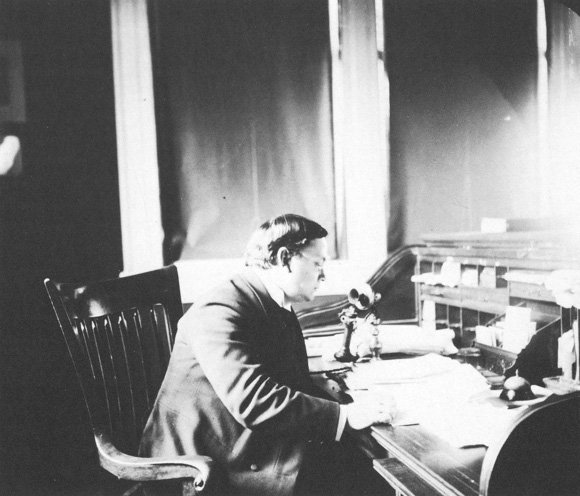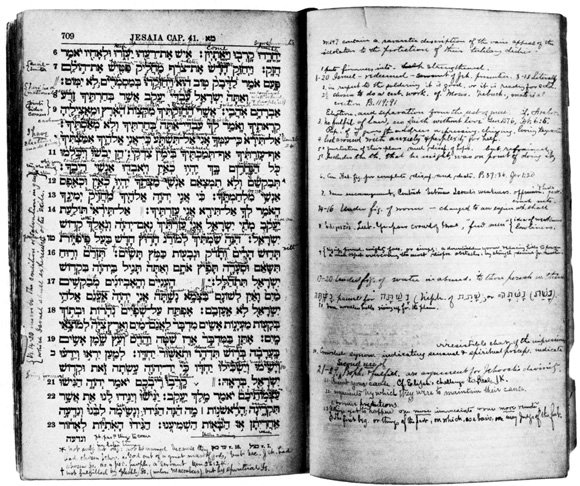William Rainey Harper (1856-1906): Semitic Languages and Literatures
Harper's pedagogical gifts were legendary. E. Benjamin Andrews, under whom Harper taught at Denison University, recalled the young instructor's performance in the classroom:
Teaching was his delight... He looked forward to each class period as a feast ....Before his class his mind and body also were all activity. His thought was instantaneous. Questions or correction followed answers like a flash ....Bright students shot forward phenomenally; dull ones made good progress.
Although administrative duties would compete for the time Harper set aside for teaching at Chicago, he taught and wrote whenever possible. Believing strongly that administrators should not be exempt from teaching, Harper taught full time as chairman of his department and as president. Even while suffering from cancer during the final months of his life, Harper continued to meet large classes of students.
His appetite for work was equally legendary. In addition to his regular teaching duties at the Baptist seminary and later at Yale, Harper organized summer schools, sent out thousands of correspondence lessons, sponsored Hebrew clubs, lectured at Chautauqua, and edited journals of Hebrew studies. While at New Haven, where he taught just before coming back to Chicago, Harper's correspondence courses, summer schools, and Chautauqua work generated a greater volume of mail at the local post office than did the rest of Yale University. By the time the University of Chicago opened, Harper's Correspondence School of the English Bible included a Christian Endeavor School of the English Bible, the College Student's School of the English Bible, the School of Hebrew and the Old Testament, the School of New Testament Greek, and a School of Semitic Languages and Ancient Versions.
The critical study of the Bible was central to Harper's vision of the new University. In the University of Chicago's first Official Bulletin, Harper wrote that "[s]pecial courses in a scientific study of the Bible in its original languages and in its translation" would become a significant part of the proposed extension program.
Harper's mix of biblical and linguistic studies, instruction, and administration were vivid expressions of his compelling faith in the power of education. Standing firmly upon the liberal, progressive religious traditions of his time, Harper drew calm reassurance from his Christian beliefs while acknowledging the integrity of colleagues who could not accept them. Open to the critical examination of sacred tradition, he welcomed a diversity of religious opinion in the belief that knowledge would produce truth.


